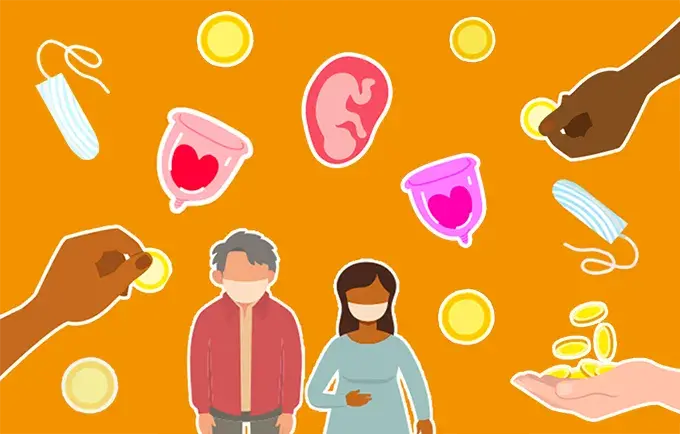Putting the brakes on COVID-19: safeguarding the health and rights of women and girls
UNITED NATIONS, New York – Officially, the COVID-19 pandemic has sickened 11 million people and left more than half a million dead. But the full toll of this catastrophe has been incalculably greater. Health systems have been overwhelmed. Economies have been shuttered. And women and girls have been disproportionately affected, with sexual and reproductive health services being curtailed and gender-based violence on the rise.
Today, 11 July, is World Population Day, a moment to raise awareness of the sexual and reproductive health needs of people around the world. This year, UNFPA is calling attention to the needs and vulnerabilities of women and girls amid the global pandemic, and the efforts needed to secure their health and human rights.
“No organization or country can do this alone,” said Dr. Natalia Kanem, UNFPA’s Executive Director, in a statement.
Heightened risks to women
Around the world, women face a variety of heightened risks due to the pandemic.
Front-line health workers – the majority of whom are women – face a direct risk of illness from COVID-19, for instance. But even women and girls outside the health sector can face risks. Those requiring sexual and reproductive health services can face anxiety about exposure to the virus while seeking care, or they may forgo care entirely. Other women are not able to receive care at all due to movement restrictions and curbed health services.
Many hospitals and health centres have reported a decline in the number of women and girls receiving critical sexual and reproductive health services, including antenatal services, safe delivery services and family planning care.
UNFPA and partners estimate that six months of significant health service disruptions could result in 47 million women in low- and middle-income countries going without contraceptives, leading to an additional 7 million unintended pregnancies. The number of maternal deaths is expected to increase.
UNFPA is working to sustain continued access to reproductive health services and supplies.
In Bhutan, UNFPA and partners are working towards ensuring uninterrupted sexual and reproductive health services including family planning for all and in enhancing the access to SRHR information by adolescent and young people. UNFPA partnered with Ministry of Health towards implementation of National COVID-19 response specifically to procure personal protection equipment towards protecting the health of front line health care providers, capacity development of RMNCH service providers and risk communication to prevention of COVID-19 transmission. The country office also supplied 5,000 locally produced sanitary pads with message on menstrual hygiene management and COVID19 prevention messages to 66 quarantine facilities and isolation centers, and for young girls at Gawaling Happy Home (shelter home).
Gender-based violence
Rising household tensions, exacerbated by economic pressures and movement restrictions, are sparking violence around the world. Women sheltering at home with their abusers often have nowhere to turn. And new forms of violence may be increasing, including cyber violence.
UNFPA estimates that six months of lockdowns could lead to 31 million additional cases of gender-based violence, and an additional 15 million more cases for every three months the lockdown continues.
To make matters worse, access to shelters and in-person counselling has been limited by the pandemic. UNFPA and partners are working to continue services for survivors wherever possible, and to increase remote operations.
UNFPA in partnership with Ministry of Health and Respect Nurture Educate and Empower Women (CSO), continued to advocate on prevention of GBV and address SRHR amidst COVID-19 pandemic through engagement of UNFPA Goodwill Ambassador addressing the nation on gender-based-violence prevention and urging the policy makers to prioritize services for maternal, newborn and child health during COVID 19 crises. Towards strengthening the community partnership and engagement in COVID-19 response, UNFPA and UNCIEF collaborated to train 107 youth and 53 adult volunteers to provide door-to door campaign on GBV, dengue and COVID19 prevention in one of the city bordering India. Further, 47 red cross/ taxi association members, 185 monks from 4 monastic institutions, 96 industrial workers, 98 teachers were also trained on prevention of COVID19 and gender-based-violence prevention. UNFPA also supported to develop GBV prevention training package which was integrated into the national volunteer training programme which benefited 2954 participants. With the increasing reported cases of gender based violence, support was provided to refurbish shelter home in the eastern part of the country to enhance protection and care services during COVID19.
The world must redouble such efforts, Dr. Kanem said: “As the global community comes together in solidarity to survive this pandemic, we lay the foundation for more resilient, gender-equal societies and a healthier, more prosperous future for all.”


